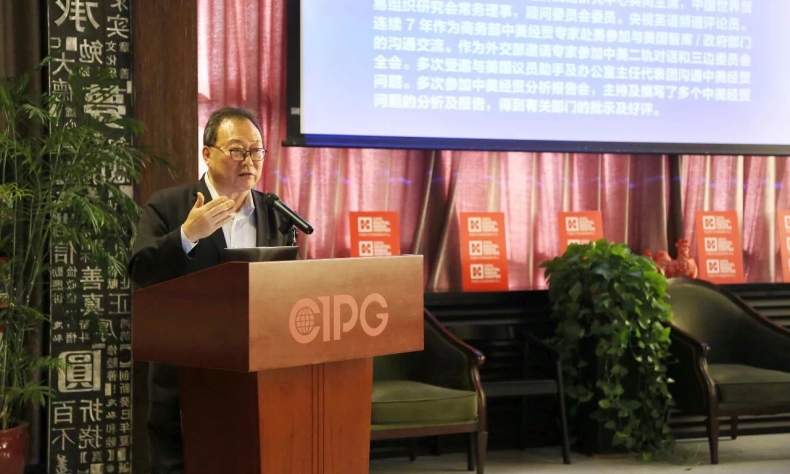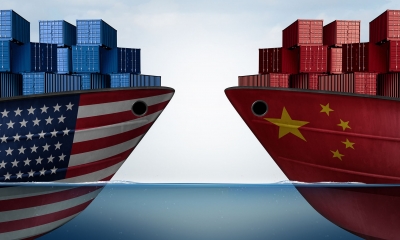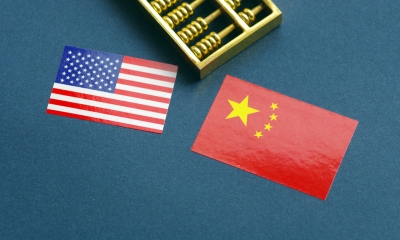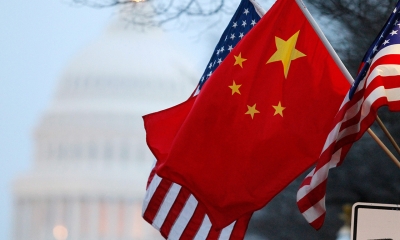How Do We Manage the Future Differences between China and the United States?

If the leaders of the world’s two largest economies become “brothers”, then everything is easy to discuss.
On November 7 in Beijing, Digital Media Center (DMC) of China International Publishing Group (CIPG) hosted a seminar: “a New Era – a New Direction of China-U.S. Relations”. A number of senior experts and academics in Sino-U.S. diplomacy and economic and trade relations attended the seminar, and held in-depth discussions on several issues regarding the current relationship and future prospects for the two countries after the two leaders’ meeting, focusing on “What is the impact on Sino-U.S. relations, and how will it influence the situation in the Asia-Pacific region and the wider world?”
Li Yong, director of the China-US-EU Study Center of China Association of International Trade (CAIT), delivered a keynote speech at the seminar and exchanged views with other experts on issues including Sino-U.S. diplomacy, trade and development.
If the leaders of the world’s two largest economies become “brothers”, then everything is easy to discuss.
Economic and trade relations between China and U.S: unsteady but not dangerous
The economic and trade relations between China and U.S. deserve attention because of the close links between the two countries. The two economic entities are the foundation of the world’s economy in terms of mass, scale and influence. Therefore, the relationship between China and U.S will have a profound impact on the regional and global economy.
For those reasons, we have always paid close attention to the actions of Donald Trump since he took office. During this period, the economic and trade relations between China and U.S. have been basically “unsteady but not dangerous”.
How has this happened? First, there was the meeting at Mar-a-Lago where President Xi Jinping established a good personal relationship with President Trump. As a former businessman, Trump attaches great importance to personal relationships. Second, there are the four high-level dialogue mechanisms established between China and U.S., focusing on diplomacy and security, the economy, law enforcement and cyber security, and social and people-to-people exchanges.
Based on the principles of mutual understanding and accommodation, mutual benefit, and win-win results, China reached consensus with the Unite States on issues such as the ten early harvests of the U.S.-China Economic Cooperation 100-Day Plan. However, at the same time, there have been some setbacks, leaving some differences unresolved. But even with these, both sides are still expecting the future development of the relationship between the two countries to be healthy.
China gives a “state-visit-plus” reception to President Trump
Trump’s reception was well prepared before his first visit to China. The Assistant to the US President for National Security Affairs, the senior adviser to the U.S. President, and the U.S Secretary of Commerce all paid visits to China at different times, laying the foundations for Trump’s visit.
The United States believes that there are three problems affecting China-U.S. economic and trade: the unfair treatment of American investment in China, China’s industrial policy, and intellectual property protection. Through this visit, the United States expects to solve these problems. How does China see things? According to Premier Li Keqiang, firstly, China will expand trade in goods and services and handle differences properly through dialogue and consultation; secondly, China will open its doors wider to the outside world and build a more friendly business environment.
China has attached great importance to Trump’s visit and decided to give him a “state-visit-plus” reception to show China’s sincerity. China will help President Trump better understand China by showing him the country’s passion, culture and economic environment.
What results can be expected?
First, the personal relationship between the two heads of the two countries is expected to grow closer, which is the wish of all concerned. If the leaders of the world’s two largest economies become “brothers”, then everything is easy to discuss.
Second, strategic communication between the two countries is expected to be smoother, reducing conflicts and disputes.
Third, cooperation between the both sides is expected to be more pragmatic. The author believes that making the cake bigger is the easiest and least fractious way to alleviate Sino-US trade friction, which many experts regard as a complex problem.
Fourth, observers expect the consensus on cooperation to expand. As there are many opportunities for cooperation between China and U.S., it is good for both countries to reach consensus in more areas. In fact, the American Dream is connected with the Chinese Dream.
Fifth, both countries are expected to manage differences through mutual benefit and a win-win approach. The two countries should ignore their differences in ideology.
How can we best manage future differences?
Although expectations are positive, China still needs to manage future differences with the United States.
In particular, economic policies of each country has spillover effects on the other, often resulting in changes and even restrictions on the free flow of capital.
What are the areas of future uncertainty?
First, the bilateral trade policy of President Trump vs the investment liberalization advocated by China.
Second, US trade protectionism vs China’s support for multilateralism.
Third, Trump’s “America First” policy vs China’s external programs such as the Belt and Road Initiative. During the process of implementation, the two countries should seek understanding through communication. Without open communication and mutual understanding, there may be some uncertainties.
Fourth, there may be some disagreement between the nativism advocated by United States and the globalism advocated by China. In the future, during the process of globalization, the Renminbi may overlap with the position of U.S. dollar. Both sides should consider the issue from the perspective of a win-win result.
Finally, investment and security issues. Security has been a relatively broad concept. The author believes that “pan-securitization” is unnecessary. Security issue should be properly handled and not be overblown to influence cooperation.
Opinion articles reflect the views of their authors, not necessarily those of China Matters
 Facebook
Facebook
 Twitter
Twitter
 Linkedin
Linkedin
 Google +
Google +







